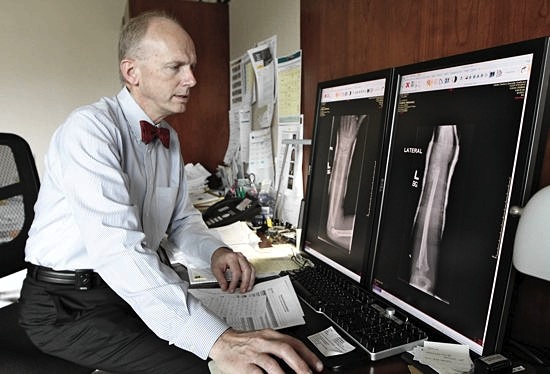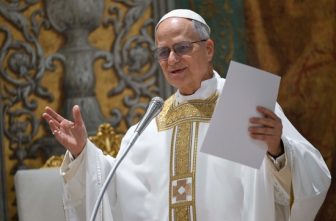
In his words
This is a hospital for children with disabilities, for the most part. Most of the kids who come have some relatively special issues going on.
Each of the children who comes here is a creature of God, made for a purpose, inherently carrying with them a dignity that is just part of their being. And, if you recognize that, then the nature of taking care of these children changes dramatically.
When you see a child’s inherent dignity, you begin to engage the child in a very different way and you begin to speak about, ‘How do I assist this child. How can I be helpful to this child and this child’s family?’
Medicine is what takes place between those two people [staff person and patient]. Surrounding that are a lot of things that we see when we first look at medicine — the technology, the machinery, the equipment and the buildings, or the statistics. [But] medicine is about that interplay between those two people.
A few years ago, there was a morning where I had been called during the night to go and see a newborn baby who was born with a lot of very complicated problems, a lot of birth deformities. This child was very fragile and obviously struggling.
I came as a consultant. I came to address a group of medical issues for this child and to play my role as a physician in my specialty in trying to understand this child. So, I met the baby and family.
It was later that afternoon when I got a phone call asking if I could come back and see the baby. When I spoke to the secretary who made the call, I thought for a moment that they might have missed the fact that I had already been there because this is one of the tasks that the secretaries often have — make sure that the consultants have come and done their work. She said, ‘No, that’s not what it’s about.’
She said, ‘We were wondering: Could you come back because the parents would like the baby to be baptized?’ The point was that some of the folks — a couple of the nurses — knew of my diaconal work.
When it became evident that the baby was failing and very likely wasn’t going to be able to survive, the focus shifted from the medical evaluation, and all that goes on with that, to a different focus.
The family spoke about wanting to have the baby baptized. As it happened, the family was Catholic. So, the nurses mentioned that I was a deacon.
In the afternoon, I came back and baptized the baby. It was really quite a remarkable experience — this intersecting of the ministry of medicine and diaconal ministry, healing each in their own way. The baby did die later that night.
There are other times when I am called upon to speak in a more public way for the merit of the children we serve. And, that’s engaging the public square — whether it’s the Legislature or state government — around the funding of the children that we take care of, to speak about their needs, the merit of those needs, why we should allocate resources for helping them and their families.
In medicine, physicians receive undue notice. Too much attention is paid to physicians and, to be more specific, too much credit is given and, at times, too much blame is given. Physicians are too much at the focus of what medicine is.
In this environment, we know that medicine is a group activity. I could walk you through the hallways, introduce you to a ton of people. Every last one of those people plays a role in taking care of the kids we serve.
When you move into this notion of being part of a group and acknowledge that patients need all of these people [caregivers], you now open yourself to growing and changing and learning and helping everybody who’s going to be a part of taking care of that child, bring their best efforts to caring for that child.
I’m not the same person I was 27 years ago. I’ve grown and changed a lot over those years.
I think probably the single smartest thing I ever did in my career as a physician was to pick a place and stay there, and to have, as the Benedictines would say, stability. There are three vows or promises that Benedictines make when they become part of the community and one of them is stability — the pledge to stay, to come and to stay.
I’m most proud of all the people who work here, and their unfailing commitment to the patients we serve. This organization and its people buy into the premise that the only reason that we exist is to serve people, to serve patients. It’s impossible to describe how much difference that makes in medicine.
Profile
Age: 59
Company: Gillette Children’s Specialty Healthcare
Title: Medical director
Parish: St. Rita, Cottage Grove
Spouse: Debbie
Children: Brendan, Colin, Allison, Evan
Church ministry: Permanent deacon
Activities: Reading books, golf, jogging




